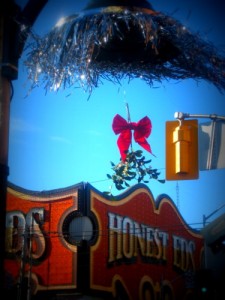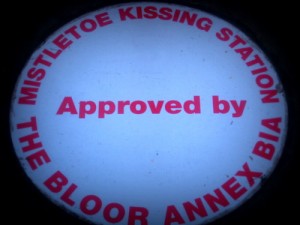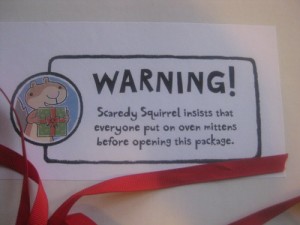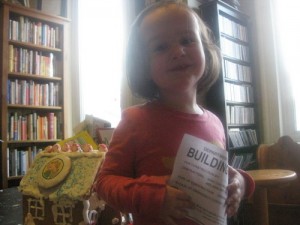December 5, 2012
The Selected Short Fiction of Lisa Moore
 To celebrate their 45th anniversary this summer, House of Anansi reissued 10 of their “classic books” as The A List, a gorgeously designed series of eclectic reads, and the first one I turned to was The Selected Short Fiction of Lisa Moore. Because I love Lisa Moore. I was so struck by Alligator when I read it in 2006; found it to be a Woolfian “recording [of] the atoms as they fall”. And then with February in 2009, a book I decided was absolutely perfect. I thought anything could be declared so objectively. As I read the novel, I had no idea of the polarizing reaction readers would have to it, that its reviewers would be alternatively sobbing hysterically or spitting with scorn. Though I’ve reread the novel since, and found it didn’t let me down.
To celebrate their 45th anniversary this summer, House of Anansi reissued 10 of their “classic books” as The A List, a gorgeously designed series of eclectic reads, and the first one I turned to was The Selected Short Fiction of Lisa Moore. Because I love Lisa Moore. I was so struck by Alligator when I read it in 2006; found it to be a Woolfian “recording [of] the atoms as they fall”. And then with February in 2009, a book I decided was absolutely perfect. I thought anything could be declared so objectively. As I read the novel, I had no idea of the polarizing reaction readers would have to it, that its reviewers would be alternatively sobbing hysterically or spitting with scorn. Though I’ve reread the novel since, and found it didn’t let me down.
I’d read one of Lisa Moore’s short story collections as well, but I can’t remember which, which is to say everything about its impression upon me. So I was very eager to read the The Selected Short Fiction, to know better the work of this author who has meant so much to me. And what struck me about the collection, which is made up of Moore’s two short story collections and a few unpublished stories, is that the novels are really not such a departure after all. The same setting, kinds of characters, preoccupations. Lisa Moore is brilliant, and it seems that what she creates can’t possibly come from mere imagination but from vision. The line highlighted by Jane Urquhart in the collection’s introduction: “They made love on the grass watching out for broken beer bottles, an aureole of amber glitter around their bodies.”
“Natural Parents” was my favourite (and I am know I’m not the only one who has ever said this)–the cerebral, all the action. The stories were funny, wrought, exhausting, hard to follow, which makes sense, considering this from Moore, from a CBC interview whose link no longer exists: “If the reader knows where you’re going, there’s no point in reading that sentence; they’ll just skip it. It’s not for the sake of being avant-garde that I want it to be unexpected. It’s because I think a real engagement with a book means that the reader has to chase after the story”. All that chasing in a short story collection though is really hard, one chase after another. I love short stories and I love impossible engaging literature, but it’s hard to fit that kind of read into a life. It’s almost like running around in circles. One short story at a time, perhaps, but then I don’t encounter my books that way. I really would much prefer to have to work that hard on a novel, if I have to work that hard at all.
It occurs to me that what Moore is up to in her novels is not really so different though–that Alligator is just as fragmented and hard to follow (and wonderful!) as the short stories are, and that anyone who sees February as anything otherwise is reading it wrong. There is a bare bones, semi-conventional plot to February that is decidedly not the point of the book. It’s what’s going on beneath the surface that matters, that as with the short stories moments far apart in time occur simultaneously. That February is in fact a long short story that takes on a novel’s dimensions, but look close and you’ll see the underpinnings are the very same. (I’ve written a whole essay on the goodness and value of this book. It’s pretty much all I really ever have to say about anything.)
Anyway, this is the great thing about reaching back in time for a book, about a series like The A List. Because on one hand, each book is a new encounter, but one that has the context of casting everything that came after in a whole new kind of light.
December 4, 2012
Christmas Reads: The Jolly Christmas Postman
 At the beginning of November, when I too was moaning about “the Christmas creep”, I forgot to bat an eye when I came across The Jolly Christmas Postman in the bookshop, and instead partook in an elaborate jig in my head and bought the book immediately. Because we’re big fans of the Ahlbergs at our house, and of the Jolly Postman in his original form, and the postal system in general. I saved the book until December 1 and we’ve been reading it steadily ever since. And how wonderful it is that this book isn’t riding the tails of its franchise, but instead is even better, richer than the original. We’re totally in love with it.
At the beginning of November, when I too was moaning about “the Christmas creep”, I forgot to bat an eye when I came across The Jolly Christmas Postman in the bookshop, and instead partook in an elaborate jig in my head and bought the book immediately. Because we’re big fans of the Ahlbergs at our house, and of the Jolly Postman in his original form, and the postal system in general. I saved the book until December 1 and we’ve been reading it steadily ever since. And how wonderful it is that this book isn’t riding the tails of its franchise, but instead is even better, richer than the original. We’re totally in love with it.
There is so much detail here, right down to the postmarks (from such places as Banbury Cross and Wobbleton, and if you’re as entrenched in Mother Goose as we are, you too will find this delightful). Allusions to the lady with the alligator purse, a glimpse into Red Riding Hood’s playhouse, updates on our favourite characters (The 3 Bears have become a 4some, Baby Bear now a big brother!). And it’s not jus’t letters our Jolly Postman is delivering; along with Christmas cards, his envelopes contain a jigsaw puzzle, a board game, and an elaborate 3D card. A present full of presents indeed.
Oh, and I love the meta elements! “‘A book in a book!’ says the Gingerbread Boy./ “What a simply delicious surprise.”/ (But if he only knew he’s in one too–/That would really open his eyes.)’ The first two lines of which are basically my literary philosophy.
The Jolly Postman’s route ends up at the North Pole at a certain workshop where he’s dropping off a huge pile of children’s letters. And fortunately, because it’s dark, snowy and cold, he’s able to hitch a ride on Santa’s sleigh to get home.
December 3, 2012
Talented Friends
 This busy weekend featured a couple of my talented friends, and not for having written books even! On Saturday night, we attended the very exciting Toronto premiere of the short film “How to Keep Your Day Job”, based on the short story of the same name by Rebecca Rosenblum. It was so wonderful to be there in a room full of people, all of us collectively laughing at the humour and gasping at the otherwise. The film was so well done, underlining the goodness of its foundation. The film has already been shown in Calgary, and if you hear of it coming about somewhere near you, definitely go and see it.
This busy weekend featured a couple of my talented friends, and not for having written books even! On Saturday night, we attended the very exciting Toronto premiere of the short film “How to Keep Your Day Job”, based on the short story of the same name by Rebecca Rosenblum. It was so wonderful to be there in a room full of people, all of us collectively laughing at the humour and gasping at the otherwise. The film was so well done, underlining the goodness of its foundation. The film has already been shown in Calgary, and if you hear of it coming about somewhere near you, definitely go and see it.
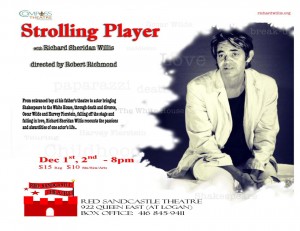 And then last night I went to the theatre! I saw Strolling Player at the Red Sandcastle Theatre in Leslieville, written by Heidi Reimer and her husband Richard Willis, and starring Richard, a 90 minute one-man show about his life in theatre that begins with his birth (on purpose) at Stratford-Upon-Avon. A life in 90 minutes that takes up from a summer theatre in Guernsey, to stages in London’s West End, marriages wrought to ruin by tabloid journalism, exhausting tours across America, and a most unlikely true love discovered in the wilds of West Virginia. It was by turns funny, sad, and always excellent. I was so thrilled to be there, and very excited to learn that the show will be staged this summer as part of the Toronto Fringe Festival. Do not miss this one…
And then last night I went to the theatre! I saw Strolling Player at the Red Sandcastle Theatre in Leslieville, written by Heidi Reimer and her husband Richard Willis, and starring Richard, a 90 minute one-man show about his life in theatre that begins with his birth (on purpose) at Stratford-Upon-Avon. A life in 90 minutes that takes up from a summer theatre in Guernsey, to stages in London’s West End, marriages wrought to ruin by tabloid journalism, exhausting tours across America, and a most unlikely true love discovered in the wilds of West Virginia. It was by turns funny, sad, and always excellent. I was so thrilled to be there, and very excited to learn that the show will be staged this summer as part of the Toronto Fringe Festival. Do not miss this one…
December 2, 2012
It's December
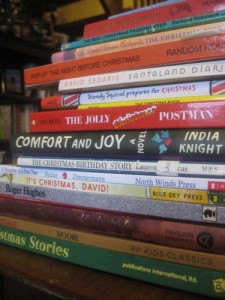 It’s December, which means that we’re listening to Darlene Love on repeat, and trying to reconcile our secular selves with this religious holiday with a great deal of joy. (Christmas is about lighting the darkness. It is about the promise of new life. I like that.) It means that the tree isn’t up yet, too soon, but the halls are decked, and the Christmas books are unpacked into the pile that just keeps on growing. Over the next three weeks, I’ll be sharing some of them with you here. If I were so inclined I’d even put together a Christmas Book Advent Calendar–what a wonderful idea! Over at 49thShelf, we’re celebrating Canadian books with the Lit Wish List campaign, so many great ideas for giving and receiving. And the other Scaredy Squirrel Gingerbread Houses have put our efforts to shame, so much so that we’ve decided just to eat ours and forget about it and pretend this never happened.
It’s December, which means that we’re listening to Darlene Love on repeat, and trying to reconcile our secular selves with this religious holiday with a great deal of joy. (Christmas is about lighting the darkness. It is about the promise of new life. I like that.) It means that the tree isn’t up yet, too soon, but the halls are decked, and the Christmas books are unpacked into the pile that just keeps on growing. Over the next three weeks, I’ll be sharing some of them with you here. If I were so inclined I’d even put together a Christmas Book Advent Calendar–what a wonderful idea! Over at 49thShelf, we’re celebrating Canadian books with the Lit Wish List campaign, so many great ideas for giving and receiving. And the other Scaredy Squirrel Gingerbread Houses have put our efforts to shame, so much so that we’ve decided just to eat ours and forget about it and pretend this never happened.
In huge news though, I have a new hat.
November 29, 2012
The Vicious Circle reads Straight Man by Richard Russo
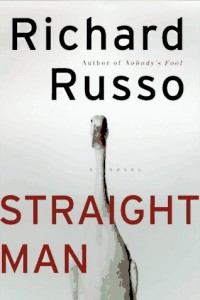 Last evening, various circumstances conspired to have me learn that it takes just 20 minutes to drive from Pharmacy and Lawrence Avenues in Scarborough to Brockton Village downtown, and to have it confirmed for the one millionth time that from the vantage point of the Gardiner Expressway between the DVP and Spadina, Toronto at night is one of the most beautiful sights in the world. And so I was a bit late for our Vicious Circle gathering but not so late, due to the swiftness of my journey, and I was pleased that they’d saved me a plate of macaroni and cheese. We’re also developing a thing for cheesies. Needless to say, it was a very balanced meal.
Last evening, various circumstances conspired to have me learn that it takes just 20 minutes to drive from Pharmacy and Lawrence Avenues in Scarborough to Brockton Village downtown, and to have it confirmed for the one millionth time that from the vantage point of the Gardiner Expressway between the DVP and Spadina, Toronto at night is one of the most beautiful sights in the world. And so I was a bit late for our Vicious Circle gathering but not so late, due to the swiftness of my journey, and I was pleased that they’d saved me a plate of macaroni and cheese. We’re also developing a thing for cheesies. Needless to say, it was a very balanced meal.
Our book was Straight Man by Richard Russo, an academic satire (we like academic satires) that which was pretty favourably received, except for one of us who found it so much like Michael Chabon’s The Wonder Boys that we didn’t see the point in finishing. Others found it funny and a comfort read, though one of us found the whole academia-line a little too close to home, not so funny after all. There was speculation as to whether academia really has this much sex, and we decided yes, although it was noted that professors don’t marry their students at quite the same rate that they used to.
Russo has written better books, it was pointed out–Empire Falls. It was decided that he’s not great at writing endings. We wondered about the relationship between this book and Lucky Jim, and wondered what kind of 50 year old man (or anyone, for that matter) would aspire to be Lucky Jim. Lucky Hank is clever though, too clever for his own good, actually, where Jim really wasn’t, which was the book’s point.
The scene of the naked journalist in the hot-tub, the image of her caking make-up like her face was falling off. The female characters in the book was as interesting as their male counter-parts. There was great writing here. We loved the complexity and grown-up nature of Hank’s marriage, and that he never cheats on his wife nor she on him. It’s too easy a plot point and this book is more for doing something different. This is a comic novel, but it’s not without considerable complexity–the lines that run through it about suicide, the scene with young Hank thinking about hanging himself from a pipe in the basement until he’s rescued by his mother, and she saves him, but the incident drives them forever apart. We liked his mother too, and her sometime paramour/chauffeur.
It’s a book much like its character–it can’t help going for the easy laugh. We thought about Lucky Jim again (though we called it Lord Jim for a moment, and then acknowledged that Conrad went for the easy laugh not often), and how much more complex was Russo’s book. There are depths here, though none of us were sure we’d visit its 400 pages again in order to plumb them.
November 27, 2012
Here and There
 No blog post of considerable substance today because I have scheduled a marathon tonight to get though 200 pages of Richard Russo’s Straight Man before my book club meets tomorrow night. Whatever book I’m reading next is not allowed to be 400 pages along–I need a dose of brevity. In huge news, Harriet turned 3.5 yesterday and therefore had her photo taken with Miffy. We can’t quite believe how much she’s turned into a big girl since her birthday 6 months ago. Her Daddy also had a birthday this weekend, an actual full birthday, and it was a pleasure to celebrate his goodness (and eat cupcakes). In great luck news, we participated in a community clean-up on Saturday and found $10 in a leafpile. On Sunday, we stopped by the AGO to see Monica Kulling read from her new book Lumpito, which we’re all a little fond of. I was thrilled to see a couple of my favourite books of 2012 turn up on the Globe and Mail’s best book round-up— Mad Hope and The Juliet Stories. Other exciting things are Obama supporting indie bookshops; a new novel by India Knight!; and this excellent book vending machine which I have to visit asap. As soon as I finish reading Straight Man, that is…
No blog post of considerable substance today because I have scheduled a marathon tonight to get though 200 pages of Richard Russo’s Straight Man before my book club meets tomorrow night. Whatever book I’m reading next is not allowed to be 400 pages along–I need a dose of brevity. In huge news, Harriet turned 3.5 yesterday and therefore had her photo taken with Miffy. We can’t quite believe how much she’s turned into a big girl since her birthday 6 months ago. Her Daddy also had a birthday this weekend, an actual full birthday, and it was a pleasure to celebrate his goodness (and eat cupcakes). In great luck news, we participated in a community clean-up on Saturday and found $10 in a leafpile. On Sunday, we stopped by the AGO to see Monica Kulling read from her new book Lumpito, which we’re all a little fond of. I was thrilled to see a couple of my favourite books of 2012 turn up on the Globe and Mail’s best book round-up— Mad Hope and The Juliet Stories. Other exciting things are Obama supporting indie bookshops; a new novel by India Knight!; and this excellent book vending machine which I have to visit asap. As soon as I finish reading Straight Man, that is…
November 25, 2012
Flight Behaviour by Barbara Kingsolver
 In her latest novel Flight Behaviour, as ever, Barbara Kingsolver has written a novel about ecology. “Ecology is the study of biological communities. How populations interact,” so explains lepidopterologist Ovid Byron. The populations Kingsolver considers in Flight Behaviour are the Turnbrows, a farming family from Appalachia fallen on hard times, and their feisty daughter-in-law Dellarobia who, after ten years, is still an outsider in their midst. When Dellarobia discovers that an enormous population of monarch butterflies have settled in the forest on her family’s mountain, the family encounters other populations previously unimaginable–a team of scientists, environmentalists, frenzied journalists. And finally, on a biological level, Kingsolver is writing about the displaced monarch population and whatever factors in a climate gone awry have led them off their usual migratory route.
In her latest novel Flight Behaviour, as ever, Barbara Kingsolver has written a novel about ecology. “Ecology is the study of biological communities. How populations interact,” so explains lepidopterologist Ovid Byron. The populations Kingsolver considers in Flight Behaviour are the Turnbrows, a farming family from Appalachia fallen on hard times, and their feisty daughter-in-law Dellarobia who, after ten years, is still an outsider in their midst. When Dellarobia discovers that an enormous population of monarch butterflies have settled in the forest on her family’s mountain, the family encounters other populations previously unimaginable–a team of scientists, environmentalists, frenzied journalists. And finally, on a biological level, Kingsolver is writing about the displaced monarch population and whatever factors in a climate gone awry have led them off their usual migratory route.
Though much more accessible and concerned with the lives of ordinary people (as opposed to Frieda Kahlo and Trotsky), Flight Behaviour is a continuation of the ideas Kingsolver dealt with in The Lacuna, a brilliant book which won the Orange Prize in 2010. She is concerned with an America-divided, a nation stuck on its false binaries, and eroding itself with creeping anti-intellectualism. Flight Behaviour is set in the present day, and its underlying premise is climate change.
Its impact seems obvious–crops are lost to rainy summers, winter never really arrives. And yet to the Turnbrows, “climate change” is an idea, a debate. At least this is what the men on the radio tell them. The crazy weather is another way in which Dellarobia Turnbrow has no control over her life, a life in which there is never enough money, enough work, and she and her husband have never managed to escape from under the thumb of her over-bearing mother-in-law Hester. One day, however, as the book begins, Dellarobia decides to take at least one part of her life into her own hands, and set in motion a series of events to free her from everything. She’s heading up the mountain toward her own escape route, a liaison with a man who is not her husband.
She never gets there–she sees the butterflies instead, and without her glasses, the red looks like the world on fire. Convinced she’s seen a sign, she returns back to the place where she belongs, unaware that the sign she’s seen is an indicator of something with nothing to do with her and family at all, but which also to do with everything.
Ovid Byron, the butterfly scientist, shows up amidst the journalists, hippie kids and sight-seers with an interest in the phenomenon on the Turnbrow mountain. He sets up camp out behind Dellarobia’s house, and she’s taken on by his team as a assistant. The team, feels Dellarobia, is from another world, with their expensive gear, their years of learning, understanding of the wider world, experiences of travel. Dellarobia has a reputation as “the smart one” but was never able to make much of it after getting pregnant at the end of high school, and shotgunning it into early marriage. And suddenly with her new job (and its income), the world becomes open to her in a way it hasn’t been in years. Unfortunately, this opening is occurring as the world is in peril–what has provoked the butterflies to change their patterns? Will the population make it through the Appalachian winter, so different from the Mexican climate they’re accustomed to. And will they be able to convince Dellarobia’s father-in-law to change his mind about clear-cutting the entire mountain, a decision he’d made to get the family through one payment of a massive debt?
Complicating binaries is what Barbara Kingsolver does, and so this is not just a story about how a group of scientists delivered enlightenment to a simple country girl, and neither is this an inversion in which the humble girl teaches the big city folks a thing or two about the real world. No, Kingsolver has a reverence for learning, and science wins the day, but she shows the way in which so many Americans are cut-off from understanding their stake in the climate change crisis. First, because they have other concerns–overdue bills and foreclosures, dying industries, dying towns, and also because they’ve become accustomed to seeing people just like themselves made a mockery of on television, and they start to believe that televised world is their reality. On a more practical level, whole populations lack access to decent education and resources like libraries. Kingsolver shows the ways in which climate-change denial becomes a kind of foundation myth, a way of defining self and survival, entirely entwined with personal and group identity. And that middle-class do-gooders know nothing about it– Kingsolver has a brilliant scene in which Dellarobia is urged by an environmentalist to take a pledge to reduce her carbon footprint. To bring tupperware for restaurant leftovers, when she’s not eaten in a restaurant for over two years; to carry a Nalgene instead of buying bottled water; to reduce intake of red-meat, when her family can barely afford any; and to fly less. Fly less. This to Dellarobia, who has never flown anywhere.
Most writers couldn’t pull this off, and Kingsolver doesn’t entirely—there are moments when we’re all too conscious that these characters have been born to have words put in their mouths– but the novel succeeds anyway for the greatness of its reach, the richness of its characters, its humour, for the depth of its author’s knowledge and understanding of the world, and her empathy for the people who inhabit it.
November 21, 2012
Scaredy Squirrel Gingerbread House (with a Building Permit)
Of everything we’ve ever received in the mail, the Scaredy Squirrel gingerbread house certainly takes the cake. It’s not just any gingerbread house kit, you see, because it comes with a building permit, and special instructions by Scaredy Squirrel on building the house right to code. Further, the gingerbread is completely delicious and has filled our entire house with the redolence of Christmas (already). Perhaps reminding us that there are only 30-some days left in which to come prepared for the holiday, and in accordance, we’ve also been equipped with the brand new Scaredy Squirrel book, Scaredy Squirrel Prepares for Christmas. With instructions to wear a hockey helmet (in case of falling ornaments), and to avoid candy canes (might shatter!!!).
The kit arrived yesterday, and Harriet insisted that we build it while her little friend Iole was visiting. It occurred to me at this point that 3 year-olds are far better are being agents of destruction than construction, and so this might be a terrible idea. It also made it quite possible that I’d end up swearing at Harriet in front of Iole’s mother.
Fortunately, the girls were very helpful, and we did the windows, and put the walls and roof up. I figured the instructions to wait overnight before decorating were only optional and we got started on that too, but then the house collapsed in on itself over and over again and I realized that maybe Scaredy Squirrel knew what he was talking about with his instructions. So we let the house dry, and Harriet finished decorating it this afternoon. We love it, and don’t know how long we can wait before we eat it– that smell! And the best thing is that I didn’t even swear once.
November 19, 2012
Reading in the First Trimester
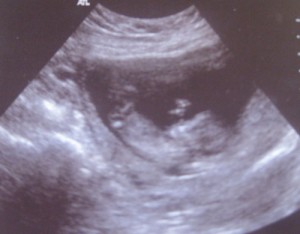 I have so much trouble reading when I’m 6-12 weeks pregnant. As I’ve done it twice now, I can say for a fact that I am the problem and it’s not necessarily the books I encounter, all of which seem to me to be absolutely intolerable. In my first trimester of pregnancy, I completely lack the patience required to overlook the (often obligatory) parts of any book that are intolerable, and understand its fundamental goodness. I can’t read a book that’s very long either, because eventually it becomes associated with nausea and even the thought of the book makes me want to puke. I have a similar relationship with Calgary– every time I go there, I’m 6 or 8 weeks pregnant, and I can’t even think about it anymore. And with Cloud Atlas, whose first pages I read in Calgary and therefore never again.
I have so much trouble reading when I’m 6-12 weeks pregnant. As I’ve done it twice now, I can say for a fact that I am the problem and it’s not necessarily the books I encounter, all of which seem to me to be absolutely intolerable. In my first trimester of pregnancy, I completely lack the patience required to overlook the (often obligatory) parts of any book that are intolerable, and understand its fundamental goodness. I can’t read a book that’s very long either, because eventually it becomes associated with nausea and even the thought of the book makes me want to puke. I have a similar relationship with Calgary– every time I go there, I’m 6 or 8 weeks pregnant, and I can’t even think about it anymore. And with Cloud Atlas, whose first pages I read in Calgary and therefore never again.
Another book I can’t handle is Cybele Young’s A Few Bites, which is so so good! But the book came into my life when I was six weeks pregnant and when Ferdie is presented with his lunch of broccoli, carrot sticks, and ravioli, my stomach heaves. I can no longer eat broccoli, which is bizarre because I’ve always loved it, but no longer, temporarily I hope. We’ve had to ask our organic food delivery to stop bringing it because every week I threw it out.
There is Nicola Barker’s The Yips, which I bought in Calgary but Calgary was not even the problem. The biggest problem I think is that it was not as good as Burley Cross Postbox Theft or Darkmans, and I was so unhappy (and feeling sick) while I was reading it. There were a few weeks where I hated everything, and not just books, but then I started reading A Very Large Soul: Selected Letters of Margaret Laurence, and began to feel better. Correspondance and short stories were the trick I guess, fragments, and perhaps this was why I was so elated to discover Isabel Huggan’s The Elizabeth Stories–finally a book to fall in love with. And the Susans anthology. And slowly, slowly, I was happy to find that I could love books again. (I am not sure that Calgary will recover so easily.)
So yes, this is a round-about way of saying that after being the first woman ever to have a baby three and a half years ago, I am going to pioneer the act of having a second at the end of May. Literary trauma aside, I’ve had a relatively easy first trimester and have been so grateful for Harriet’s mornings at school so that I’ve still been able to get my work done. Grateful too that we dragged out Harriet’s napping through the weeks when I needed it most. Also that emotionally, I’ve have a much easier time of it this time around–with a three year old running around, less apparent miracles are easier to believe in. I have faith this time, and it’s so refreshing not be crazy (though we’ll see how long the sanity lasts. In my experience, it comes in limited quantities only).
I am excited and terrified, and hoping that everyone who promised it would be easier second-time around wasn’t lying. I am really excited for Harriet to become a sister. And most of all, I just feel enormously lucky, that this decision whether or not to have a second child was one we had the freedom and good fortune to make for ourselves.
